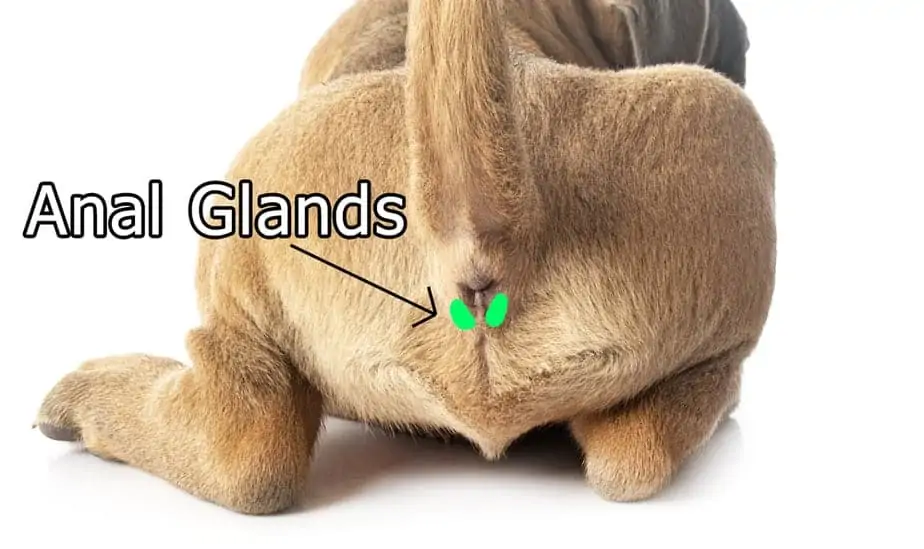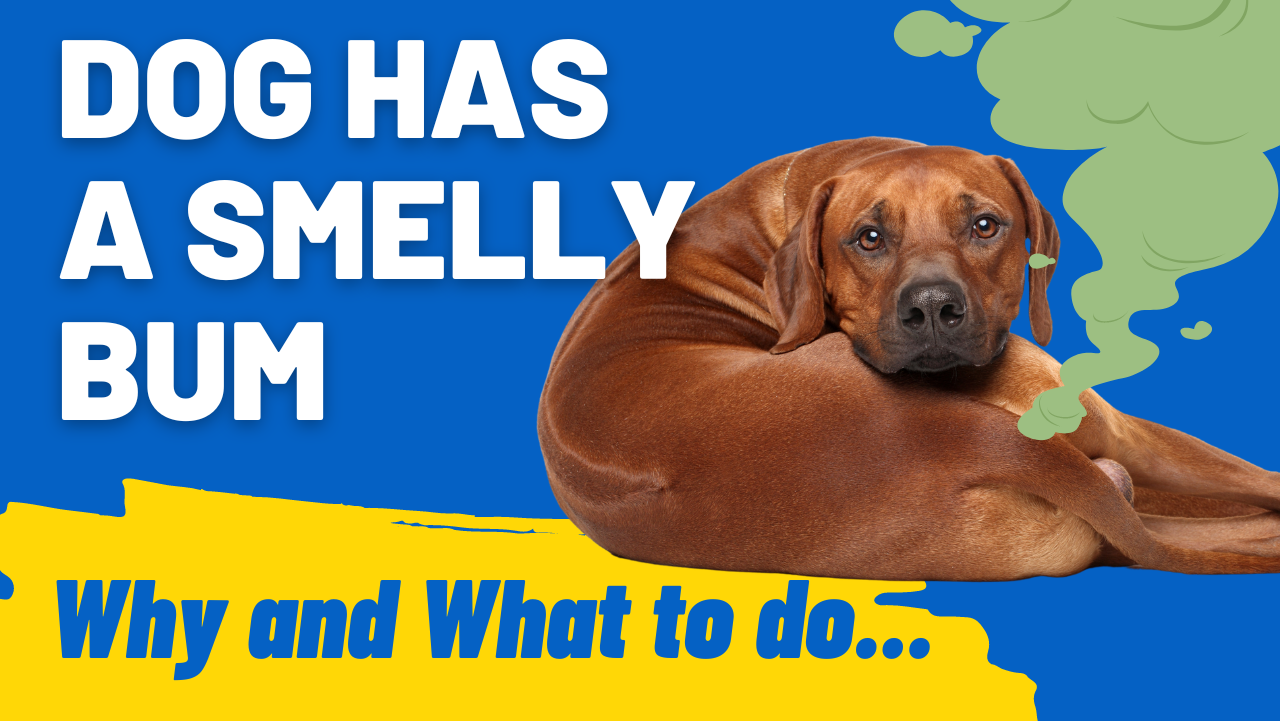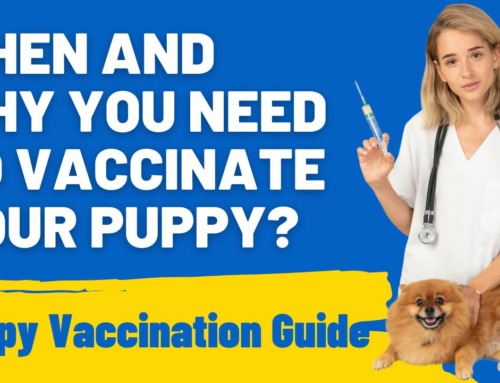Experiencing a smelly bum in your dog can be concerning and unpleasant and will leave you asking why does my dogs butt smell? This guide will help you understand the common causes, including anal gland smell issues, and we also provide practical solutions with veterinarian commentary. We’ll also touch on when it’s essential to consult a vet.
Explore more for a comprehensive understanding and actionable tips for you with dealing with your dog’s smelly bum and how to get rid of dog gland smell.
Understanding Your Dog’s Behind: It’s Not Just About the Smell
Anal Gland Issues: Problems with anal sac glands are a primary cause of unpleasant odors coming from your dog’s behind.
Other Issues Than Anal Glands: Other potential causes include dietary issues leading to gastrointestinal upset or loose stools, which can contribute to odors. Poor hygiene or lack of grooming can also lead to a build up of dirt and bacteria around the anal and bum area.
In some cases, skin infections or parasites might be the culprits.

Fixing the Smell: Safe Solutions for Your Dog
The first thing to do will be to wipe down your dog’s butt with some water and an old washcloth or some wet wipes, like these Earth Rated Dog Wipes. From there, you’ll need to figure out exactly why your dog’s butt smells.
Unfortunately, anal glands can get inflamed, impacted, and in some cases, infected. In order to rule out more serious causes for the smell, like infection, a vet visit may be in order.
The vet can help determine if the glands are impacted or infected or if there is some underlying cause for the newfound smell, like a diet change. There are ways to help at home, but first, a vet must be consulted to rule out anything serious.
If you are familiar with dog anal glands, you may be able to express them yourself and solve the issue of a smelly dog bum quickly.
Recognizing When Your Dog’s Glands Need Attention
There are a few common telltale signs that your dog may need to have their anal glands squeezed, or often referred to as, expressed.
Along with the foul odor coming from your dog’s rear end, you may also notice periodic leakage of anal gland fluid that may get on the floor or just linger on your dog’s bum. This is a sign that the glands are full and need to be expressed.
Veterinarian Comment
Another sign that your dog may be having difficulty expressing their anal glands is that they are scooching their bum across carpeting or rugs. Similarly, a dog frequently licking their rear end is another sign.
Both scooting and licking are methods that dogs commonly resort to as they try and express their anal glands themselves when they are having difficulty expressing them with their stool. One reason for impacted glands can be because your dog is experiencing loose stools and so the firm poops can’t push against the glands to express them naturally.
You may wish to read one of the following articles if this is the issue you’re having:
Dog is Pooping Jelly: (What To Do)
How long does puppy poop stay soft? Answered!
Being uncomfortable in sitting positions and being sensitive about being touched on the butt can also be signs of impacted anal glands.
Expressing your dog’s glands
Expressing your dog’s anal glands yourself is definitely something you can learn to do. It does require great care, though, as excessive squeezing or incorrect finger placement can cause damage to your dog’s anal sacs, which will only lead to more problems in the future. Moreover, it is extremely unpleasant and will undoubtedly stink up your bathroom, if not your whole house.
The best thing you can do is consult with your vet to rule out any more serious problems and to talk to them about at-home anal gland expression. Some vets will do internal anal gland expression where a gloved finger is placed inside the dog’s rectum, so the vet is able to feel the sac and express the fluid out from the inside.
However, vets are also able to do an external anal gland expression with two fingers on the outside of the dog’s anus.
Many vets will let you watch them express your dog’s glands using the external method and provide detailed instructions on how to express the glands safely at home.
Veterinarian Comment
Your veterinarian will likely perform a full rectal examination to evaluate the colon, surrounding lymph nodes, and the anal glands themselves. In cases of infection, the anal gland secretion may be off in coloration, prompting the veterinarian to evaluate the secretion under the microscope and potentially dispense antibiotics.
Additionally, other conditions like perianal fistulas and anal gland tumors can initially present with similar clinical signs. If your dog is a repeat offender truly just needing help emptying their glands, your veterinarian will likely be able to demonstrate how to accomplish this.
Dr Marti Dudley
Moreover, groomers also offer anal gland expression as an add-on service or walk-in service for dogs that may need it. Groomers more often prefer the external anal gland expression method, and most will gladly spend the time to properly instruct you and give you resources to check out to do it yourself at home.
Is it a Breed Thing? Understanding Breed-Specific Tendencies
Not all dogs and not all breeds need their glands expressed. Smaller breeds like Chihuahuas, Bichon Frises, and Pugs seem to be more prone to developing problems and bad smells related to their anal gland sacs.
Larger breed dogs are not exempt, but they seem to struggle with anal sac issues far less often than smaller dogs. Which means the larger the dog, the less chance of smelly bum problems!
Dogs and Expressing Their Own Glands by Licking
Some dogs are able to express their own glands by chewing or licking around their bum and the base of their tail. However, this can also be a sign that the anal sac isn’t functioning quite properly and could be causing the dog itchiness or irritation in that area.
Your best bet is to take your pup to the vet to check for infection, inflammation, or impaction. If not, chances are your dog has just found a method of expressing their glands themselves!
Cost Considerations
The cost of anal gland expression can vary between vet offices and locations. In addition to vet offices, grooming salons also offer anal sac expression as a service as well.
Big box pet retailer stores with grooming salons like Petco and PetSmart both offer anal gland expression as an included part of their standard bath package for any breed. The prices of these bath packages will, of course, vary by breed. But they also offer anal gland expression as a walk-in service.
It takes only about three to five minutes, and they’ll take your dog to the bathing room, express their anal sacs, and clean their rear end up for you.
Petco charges $10 for this service, and PetSmart charges $12 for this service.For a comprehensive comparison of the two, be sure to read our post Petco vs PetSmart: Which is Better 2023
Vet offices are a little more variable in their prices. Some will require you to pay for a $35 to $80 office exam before they will do any sort of anal sac expression.
However, if your dog has already been seen by this vet and they have already determined that there are no serious underlying issues, you may be able to get the dog’s anal sacs expressed for anywhere from $15 to $45, hopefully without the additional office exam fee.
Some dogs only need their anal sacs expressed once or twice a year, while others may need them expressed as often as every month! Despite the smell, it may be worthwhile to have your vet or groomer teach you how to do it yourself at home if this is a recurring issue.
The Dreaded Smell: Identifying the Fishy Odor
Most people describe the smell as something sort of fishy smelling. Others describe it as a metallic smell. The more the fluid builds up, the smellier the anal sacs and surrounding areas will get.
If you aren’t sure if you’ve smelled it before, chances are that you haven’t. The smell is often so pungent and so unique to anything else that once you smell it once, you’ll immediately know that it isn’t just any old fart or poop smell!
When Your Dog’s Glands Aren’t Expressed
In worst case scenarios, if a dog’s glands aren’t expressed, they could rupture, which results in a very painful experience for your dog and a smelly experience and possibly an expensive vet visit for you.
Prior to the point of rupture, you may also notice a dog’s anal sac fluid leaking. This is usually an indicator that they need to be addressed and expressed before they reach the point of rupturing.
Gland Infections
A few signs you may notice if your dog’s glands are infected may be swelling and redness around their anal sphincter and anus or rectal area. Other indications can include itching or scratching, or scooting behaviors.
More serious indications may be blood or pus in the dog’s stool. If you notice any of these signs, like swelling, redness, inflammation, or blood or pus in the dog’s stool, you’ll need to immediately consult with a vet.
Are you interested in reading our post, Can My Puppy Take a Bath Everyday? (Pet Care Guide and Tips)
Removing the Fishy Smell
The best way to get rid of a fishy smell coming from your dog’s rear end is to have their anal sac expressed by a veterinarian, groomer, or even by yourself at home. Expressing the anal sac and cleaning up the dog’s butt afterward should help significantly reduce and even eliminate the bad smell.
However, there are other things to consider as well in order to help get rid of the fishy smell. Consider investing in a high-quality food for your dog with a healthy amount of fiber in it.
Low-quality food can oftentimes increase the likelihood that our pups will have problems with their anal sacs. In fact, it really is amazing how big of a difference a healthy diet can make in your dog’s overall health, including the way they smell, feel, and even the way their coat shines!




